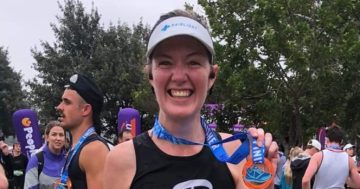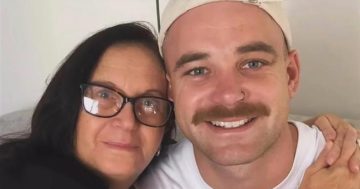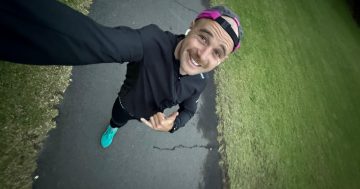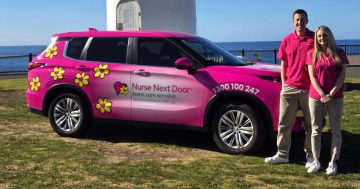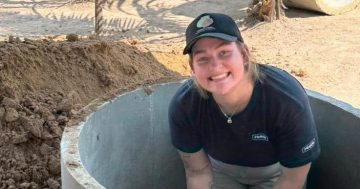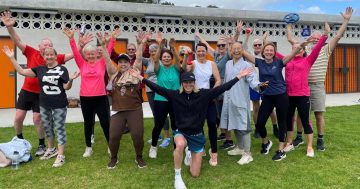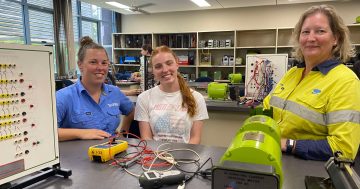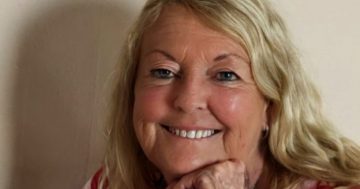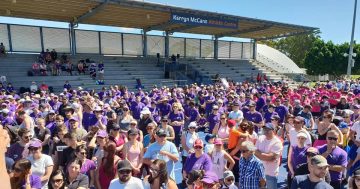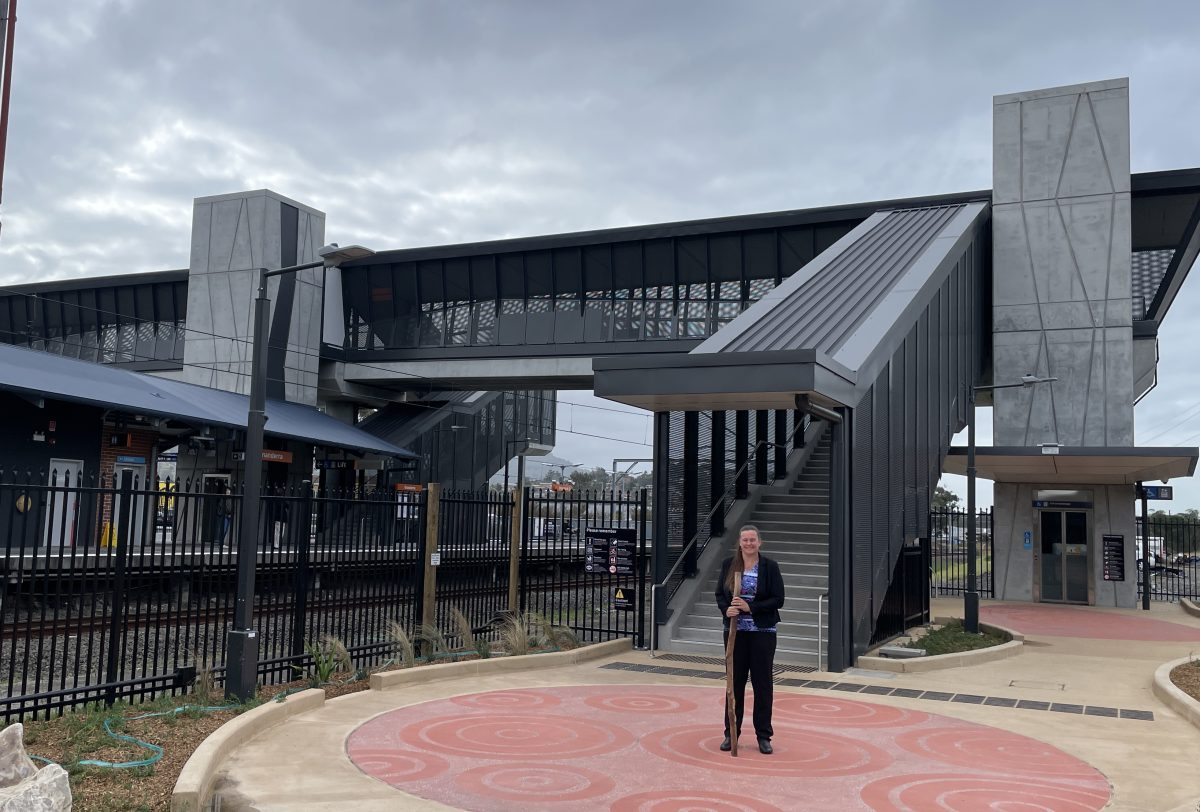
Stroke survivor Rebecca Schmidt-Lachlan was a driving force behind the upgrades to Unanderra station. Photos: Keeli Royle.
Rebecca Schmidt-Lachlan suffered a stroke when she was just 26 years old.
With no signs that she was even at risk, Rebecca went from living an active and independent life to suddenly only being able to communicate through blinking.
“When I woke up all I could do was move my eyes – couldn’t talk, couldn’t move anything and they told me that was pretty much how I would stay,” Rebecca said.
Rebecca had originally thought she just had food poisoning despite a number of unexplainable symptoms.
“I woke up and felt sick, and the first thing that went through my head was, ‘Oh, it was the Maccas I had earlier in the night’.
“I went back to bed and another hour and half got back up and had the presence to pick up my phone,” she said.
She eventually called her mother who asked if she was drunk and then keyed into the fact that this was an emergency and rushed over to the house to take Rebecca to hospital.
“By the time she got there I was barely able to open my eyes, couldn’t even talk.”
That phone call proved to be crucial.
“It’s one of those moments that could have gone either way; if I hadn’t have taken my phone and made that phone call to her and just went back to bed, I may not have woken up in the morning,” Rebecca said.
But despite her mum’s quick thinking, due to the stroke being on her brainstem and affecting both sides of her body, it had a devastating impact.
But she was determined to recover.
From demanding her toe to wiggle ‘Kill Bill-style’ to driving her own rehabilitation, that determination helped Rebecca to exceed expectations and hit countless milestones during her seven months in hospital.
“I just kept looking for another angle or another way to come at it where it might work,” she said. “It doesn’t matter how long it takes or how you have to do it.”
Her out-of-the-box approach also helped her to come up with creative solutions for everyday tasks like tying her hair up, which she still uses today.
“I do that on the ground every day and I have for the past 15 years,” Rebecca said. “When I stand my arm doesn’t have the muscle to hold it up but when I lie on the ground it stays from gravity and I can do what I want with it.
“It doesn’t matter how we do things, it just matters that the end result is what you want.”
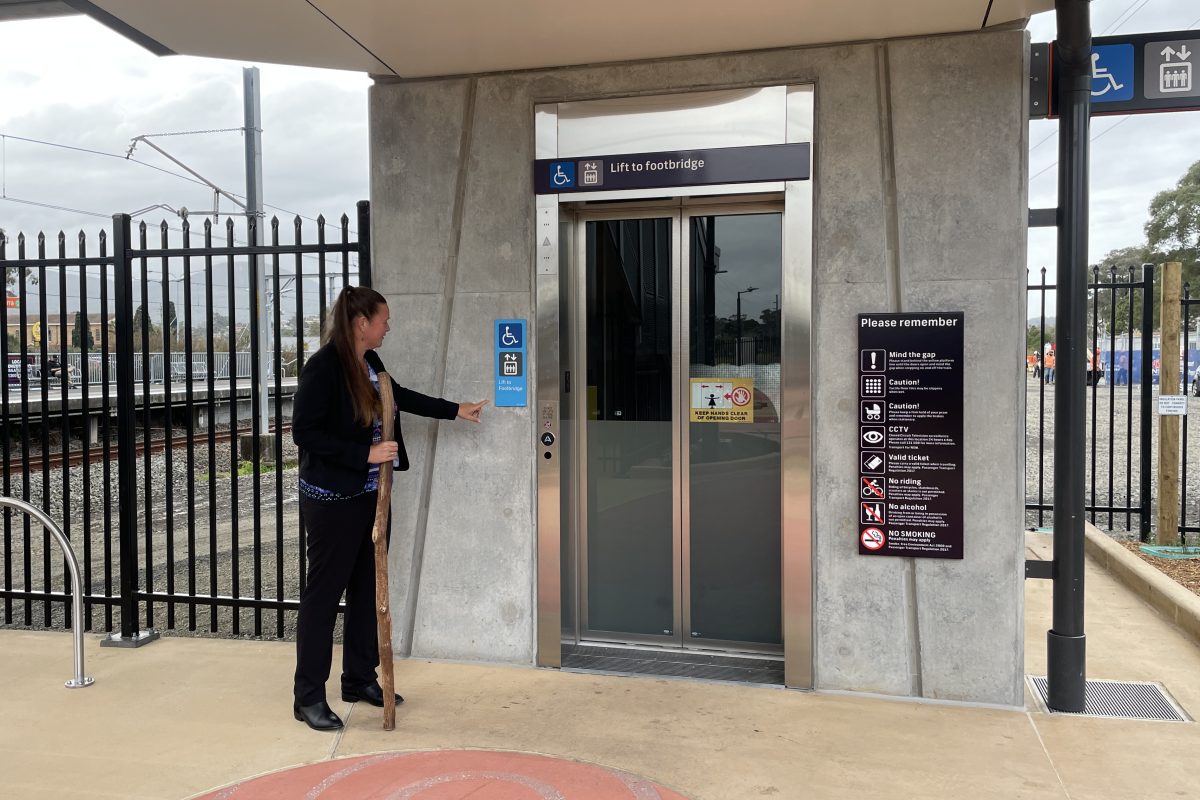
The same determination that helped Rebecca to regain mobility drove her to implement change in her community.
And that persistence has helped not only her but the hundreds who will benefit from her advocacy for lifts at Unanderra station.
She was there as the viral videos of double amputee Toby Lyndon pulling himself up the stairs were filmed and spent years fighting for the change.
“I just thought, ‘I’m going to try and get something done and make it a little bit better for people’,” she said. “If it has to be the disabled person, then I’m going for it.”
Rebecca has also written the book S***! I’m 26 and had a stroke, been a StrokeSafe Ambassador and been on the Stroke Foundation’s consumer council and said a stroke didn’t mean you couldn’t achieve your goals.
“Just because you’ve had a stroke doesn’t mean that it’s the end of things for you. I’ve got back to driving a car, went back to work in the mainstream workfield. I got married. Things that I thought I would never do, I’ve done them,” she said. “There’s no limit to what you can do, it’s what you set upon yourself.”
A quarter of people globally will have a stroke in their lifetime and Stroke Foundation CEO Dr Lisa Murphy said that the community needed to be aware that it could happen to anyone at any time.
“The group where strokes are increasing in numbers is that working age, younger cohort,” she said. “I think we just need to get the message out to people that strokes do happen to young people, it’s not just about older Australians.”
She said the best tool was the FAST acronym, which stands for ‘face’ (has their mouth drooped), ‘arms’ (can they lift both their arms), ‘speech’ (is their speech slurred) and ‘time’ (getting help right away).
“Every minute after stroke strikes 1.9 million brain cells die, so the longer you leave it to get to hospital, to get treatment, the more brain cells will die and the bigger the impact your stroke will have,” Dr Murphy said.
And she said although anyone could be affected, around 80 per cent of strokes were avoidable and there were steps you could take to reduce your risk.
“Things like giving up smoking, if you smoke, having a well-balanced diet, reducing the amount of salt, getting regular exercise and limiting the amount of alcohol that you drink.”
She said factors such as high blood pressure, high cholesterol and diabetes could often be hidden.
“High blood pressure we often call a silent killer because it’s not until you have a catastrophic event such as a stroke that you know you have high blood pressure so you have to get it managed,” Dr Murphy said. “So don’t delay, get to your GP or even pop into your pharmacy to get your blood pressure tested.”
Rebecca is urging everyone to advocate for themselves and not be afraid of getting another opinon.
“I was told I was fine,” she said. “Now knowing in hindsight I wouldn’t have walked away because I knew something wasn’t right.
“That’s the biggest thing. You know your body better than anyone.”
For more information visit the Stroke Foundation website.









